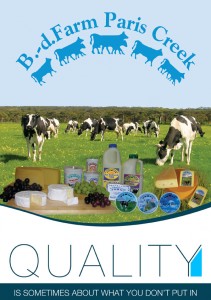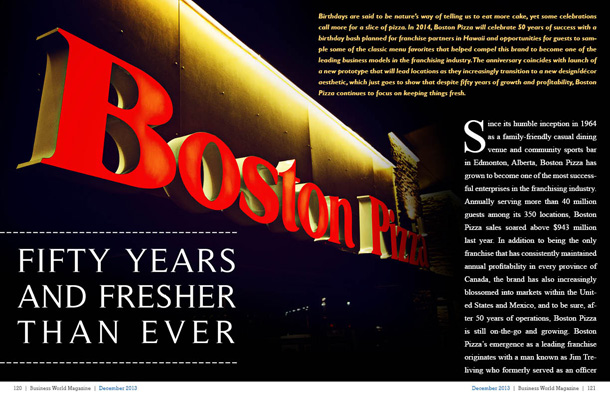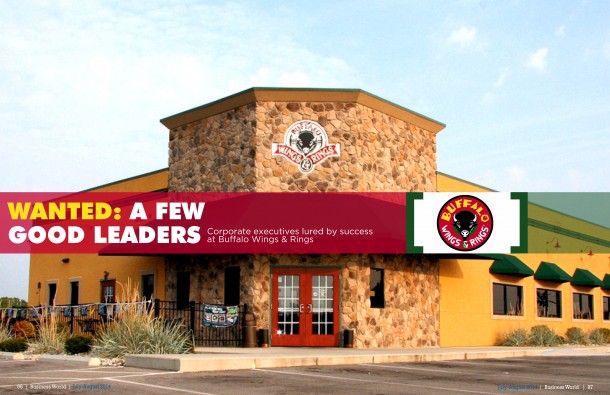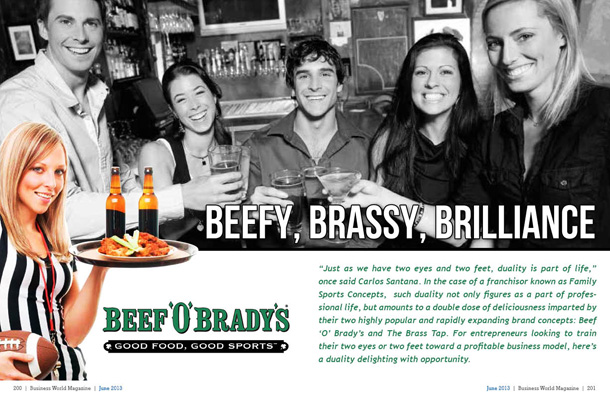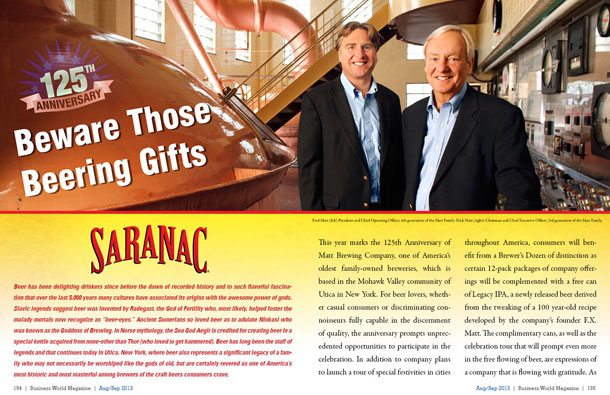
Quality is sometimes about what you don’t put in
The founders of B.-d. Farms Paris Creek are anything but your usual dairy farmers. The husband and wife team emigrated from Germany in 1988 in search of literally greener pastures. Both were professionals in their own right, Helmut Spranz held down a stable office job as a manager for the government that he viewed “as a safe and secure “‘for-ever-and-ever job’,” says the other half of the B.-d Farm Paris Creek team Ulli Spranz, but notes that it was “boring and stagnant.” Ulli herself was a professional graphic designer. “My family wanted me to become a doctor, but I am very artistic and a very practical orientated person, who loves to develop new things and I have always been fascinated by advertisements and the art of marketing. So I became a graphic designer by profession.” When they decided that they wanted to start a family they reassessed their professional lives and came upon the conclusion that they wanted their family to grow up in a more naturalistic setting than the city that they were living in.
Ulli says that it was “the natural conclusion that they become farmers.” Such a large leap would not be natural to just anyone, but they forged ahead with their plan. “Helmut studied agriculture and at the same time I spent as much time as possible gaining, practical experience on various farms, horticulture, viticulture and dairies,” says Ulli. “This included time in Switzerland learning to make cheese. On a holiday visit in Australia in 1983, where we spent 3 month travelling, we decided that once finished with our studies in agriculture, we were going to set up a project in Australia where we wanted to show that it is possible to set up a financially viable business based on primary production value adding to the raw material, and also based on a non-chemical, non-polluting approach.” Once they had arrived they set about identifying a need that their newly gained experience and knowledge could be used.
“We identified that we needed a farming style where we would have a regular, monthly income,” says Ulli and saw such an opportunity in the dairy industry. “Being ‘foodies’ and growing up with high quality organic food in a culture where ‘home-made’ was not just a fashion, but very much a day-to-day normal practice, cheese production became the ultimate goal.” They found the land that seemed to have been set aside for them just for their purposes in Paris Creek in South Australia. The land’s previous owners had maintained the 170 acres without using harsh chemicals or pesticides, so the Spranz’s conversion to a biodynamic farming business was made that much easier. “Paris Creek was the location, originating from Parish’s Creek. The Parish Family were the first settlers here, and over time it turned into Paris Creek. This was long before we came. B.-d. Farm Paris Creek basically means “the biodynamic farm at Paris Creek”. You can sense the German translation in here!” She jokes.
Everything that they had learned and lived told them that they had to do something different to become an appealing and viable business, and apply some of their European taste to the products they developed. Organic processes and products have been a major focus from the get go, their activities have been often been imitated, but B.-d. Farm Paris Creek has maintained its pioneering spirit. What has separated them from the flock is that they have attempted to keep their range of products as natural as possible.
Keeping it natural
“Our raw product – milk – is left as natural as possible. In this B.-d. Farm Paris Creek avoids ‘unnecessary’ processing such as homogenization and UHT treatment in order to keep it as close as possible to its original stage. On organic farms we avoid artificial fertilisers, pesticides or fungicides and we avoid antibiotics and hormones for the animals. This makes the milk a better product for chemically sensitive consumers, and consumers who want to avoid ‘hidden additives’ ” says Ulli. She also says that the feedback that they have received has indicated that many of their lactose intolerant consumers can actually tolerate their milk based products. Ulli says that this is because of the natural state that their products maintain.
“B.-d. Farm Paris Creek does not use any artificial ingredients,” she says. “We use all certified organic or biodynamic ingredients. Our range of original yogurts is made with milk and cultures only, no thickeners or stabilizers are used and no sugar or artificial sweeteners are added to the yogurt. This makes that range of products very unique and we are the only company in Australia processing this way. However, we also provide a range of more mainstream yogurts, entirely made from certified organic or biodynamic ingredients as well, but with a creamy, thick consistency. Our cheeses are made to resemble European Semi Hard and French Soft cheeses. The recipes have been developed by European specialty cheese makers.”
Ulli says that the biodynamic practices provide for a higher nutritional value in food products. For their dairy products this means that the calcium content generally is higher than that of conventionally produced milk. “Research conducted by the Danish Institute of Agricultural Research showed organic milk has 50% higher levels of vitamin E, 75% higher levels of beta carotene which is converted to vitamin A in the body, higher levels of omega 3 essential fatty acids, which are believed to help provide protection from coronary heart disease and two to three times higher in the antioxidants lutein and zeaxanthine. This generally helps to beat infections.”
Maintaining non-genetically altered ingredients, and avoiding artificial flavours and colours and other artificial ingredients, is of advantage when expanding the export side for the business and entering new countries that often have regulations that limit the import of modified products in any form. In Australia B.-d. Farm Paris Creek exports to every state, and most IGA’s, health food and organic stores making sure to pick up their products. Woolworth’s and Coles carry their products in South Australia, and some across some state and territorial borders.
Small farm, big reach
“B.-d. Farm Paris Creek are present in almost all Woolworths, Coles, IGA’s and Health Food Stores in SA and we are just about setting up business with the Independents through Metcash Australia wide. Our products are also available in Health Food Stores and for food service Australia wide. Some cheese products are also available Australia wide in Woolworths, such as our European Style Cottage Cheese, which is called Quark and our French Soft Cheese Nuage Blanc, both Gold Medall Winners at the Dairy Industry Awards Competition DIAA. We also export to Singapore, Hong Kong and Fiji,” says Ulli.
Ulli thinks that some of the success that they have garnered has been in part due to the fact that many consumers are becoming more educated about the products that they are consuming. “In my opinion the dairy industry is going in opposite directions. There is an urge to produce cheaper milk in order to suit the supermarkets’ main stream demands,” she says. In order to achieve a cheaper price there is the possibility to dilute the natural product, using powdered or milk substitutes and also to UHT treat the milk, that can also provide for longer lasting products. “The alternative is a wholesome milk product, derived from naturally grazing cows. A product that is carefully treated, not diluted or reconstituted, but sold in its natural stage to retain the goodness of real milk, as nature intended,” she says.
This trend also applies to other dairy products such as yogurts, which B.-d. Farm Paris Creek has some very strong offerings of its own. “The consumer can choose between creamy, full bodied products, but these potentially can be full of sweeteners, powders and stabilizers,” she says. Again the other choice, and the one that Ulli hopes the smart consumer will make, are natural products without the artificial additives. “In the end it’s the consumer’s choice what they decide to buy. It is very important that the consumer makes an educated choice based on facts and not based on the biggest promotional budget,” she says.
This split also manifests itself within some of the other challenges that the dairy industry as a whole is facing. Unlike the United States where factory farming and over production of milk products are fairly common, Australia has a more protectionist view of the industry. “The world of dairy is constantly challenging,” says Ulli.
Up for the challenge
“Dealing in today’s market situation is not easy. There are the major supermarkets as well as the growing market with the independent supermarkets and the smaller chains, the health food markets as well as consumers that prefer products directly from the producers at the fresh food markets. It is important to be able to survive in between these markets, as our business is to get the products to the consumers, regardless where the consumers are. I believe that B.-d. Farm Paris Creek is doing a very good job balancing these markets and making sure that there are no favours or disadvantages.” She says that B.-d. Farm has adapted its business strategy that does not attempt to compete directly with other farmers in the market, but instead looks to “fill in the gaps” with their product offering. She also relates that some competitors do not take this same spirit, and instead look at ways to either compete directly with them or in one case, spread disinformation about their operations and future.
“One competitor’s sales reps went door knocking and telling consumers B.-d. Farm Paris Creek would be a Singapore owned company,” she relates. “Another challenge is to match milk supply with demand for the products. To produce a genuine organic product, we want to stay away from convenient shelf life stabilizers and shelf extending processing methods, as they would interfere with the integrity of the ‘organic’ expectation of purity and support for a healthy diet. However, as we support our local suppliers in their initiative to supply us with premium certified milk, B.-d. Farm Paris Creek seem is able to manage this situation well.”
Leveraging the social
One of the ways that they have met the threat of this and larger companies with large marketing dollars to spend is their continued leveraging of social media. “Social media plays a pivotal role in terms of customer feedback and brand identity,” she says. Not only does it help them brand their image and distribute information on their products but it also provides direct feedback from their customers. “It is uncomplicated and provides important feedback for both sides. Transparency and direct involvement are the main drivers for our fans and consumers to participate in our social network. Overall it is a great way to nurture our relationship with loyal customers and to enable them to be part of B.-d. Farm Paris Creek’s continuous success and further development.”
The future
B.-d Farm Paris Creek has enjoyed substantial growth, especially over the past 10 years. Ulli Spranz says that this current period, and five years from now, will be a time of consolidation and “settling down”.
“We anticipate to grow our business another 20 % over the next 5 years, which really means that we are slowing down. It is not easy to digest such an enormous growth that we have had in the past 10 years and so it is important to settle down and ensure the long term good health of the business,” she says. This slow down of their growth will allow them to refocus on maintaining the quality and excellence that their customers have come to expect from the dairy producers. “The cheeses that we produce have been awarded Gold awards over the past 2 years,” she says, showing why their focus on quality assurance is so important to the company.
“Over the years we have been awarded numerous awards. Product awards give us an independent feedback and acknowledgement for our products,” says Ulli, not that the judges of these competitions are not made aware of the special processes that they use to make their wares, and the Spranz’s have the product speak for itself. “So, if they award us gold, silver or a champion award, we know that our products will be successful in the market. So far, all of our products have been awarded at least silver in one of the Dairy Industry Awards.” B.-d. Farm Paris Creek has also received awards for the manner in which they have built and managed the company, and Ulli herself has been awarded several business awards over the course of the company’s history, and in 2010 was awarded Rural Women of the Year in Southern Australia.


